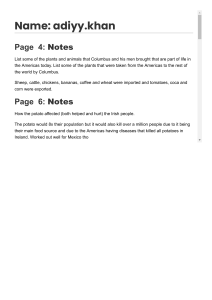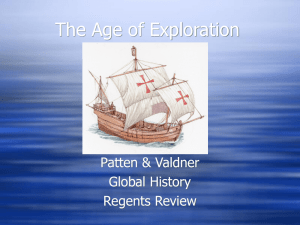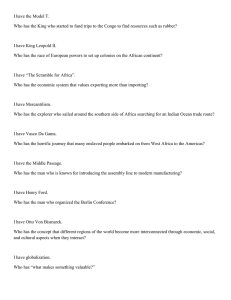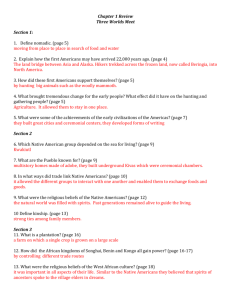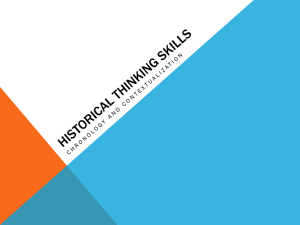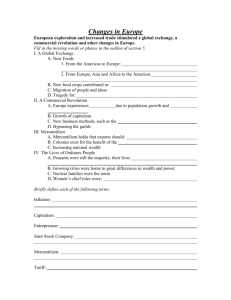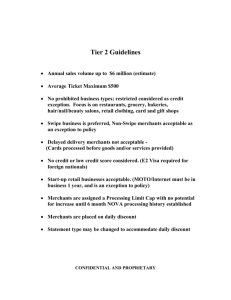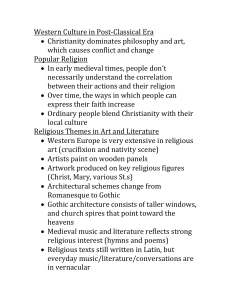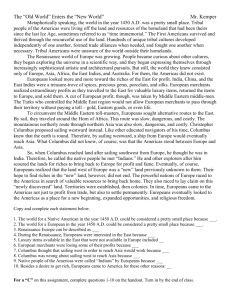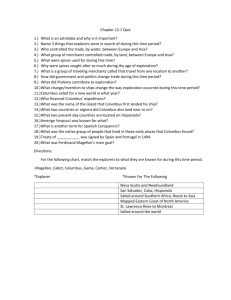3-5 Questions
advertisement
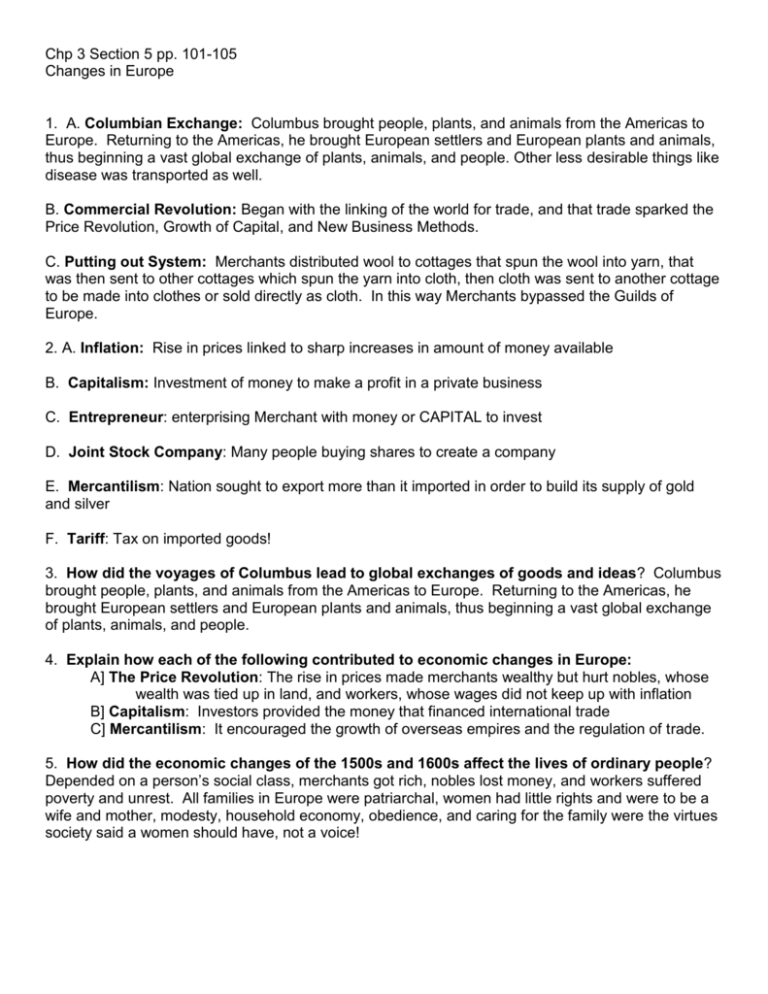
Chp 3 Section 5 pp. 101-105 Changes in Europe 1. A. Columbian Exchange: Columbus brought people, plants, and animals from the Americas to Europe. Returning to the Americas, he brought European settlers and European plants and animals, thus beginning a vast global exchange of plants, animals, and people. Other less desirable things like disease was transported as well. B. Commercial Revolution: Began with the linking of the world for trade, and that trade sparked the Price Revolution, Growth of Capital, and New Business Methods. C. Putting out System: Merchants distributed wool to cottages that spun the wool into yarn, that was then sent to other cottages which spun the yarn into cloth, then cloth was sent to another cottage to be made into clothes or sold directly as cloth. In this way Merchants bypassed the Guilds of Europe. 2. A. Inflation: Rise in prices linked to sharp increases in amount of money available B. Capitalism: Investment of money to make a profit in a private business C. Entrepreneur: enterprising Merchant with money or CAPITAL to invest D. Joint Stock Company: Many people buying shares to create a company E. Mercantilism: Nation sought to export more than it imported in order to build its supply of gold and silver F. Tariff: Tax on imported goods! 3. How did the voyages of Columbus lead to global exchanges of goods and ideas? Columbus brought people, plants, and animals from the Americas to Europe. Returning to the Americas, he brought European settlers and European plants and animals, thus beginning a vast global exchange of plants, animals, and people. 4. Explain how each of the following contributed to economic changes in Europe: A] The Price Revolution: The rise in prices made merchants wealthy but hurt nobles, whose wealth was tied up in land, and workers, whose wages did not keep up with inflation B] Capitalism: Investors provided the money that financed international trade C] Mercantilism: It encouraged the growth of overseas empires and the regulation of trade. 5. How did the economic changes of the 1500s and 1600s affect the lives of ordinary people? Depended on a person’s social class, merchants got rich, nobles lost money, and workers suffered poverty and unrest. All families in Europe were patriarchal, women had little rights and were to be a wife and mother, modesty, household economy, obedience, and caring for the family were the virtues society said a women should have, not a voice!
